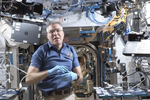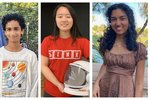Congratulations to 2023 Genes in Space Winner Isabel Jiang!
SEATTLE, Aug. 3, 2023 — Isabel Jiang, 17, is this year’s winner of Genes in Space, a biology-based research competition co-founded by Boeing’s Space Exploration division and miniPCR bio. The announcement was made at the International Space Station (ISS) Research and Development Conference in Seattle. Jiang’s experiment will be performed by astronauts aboard the space station next year.
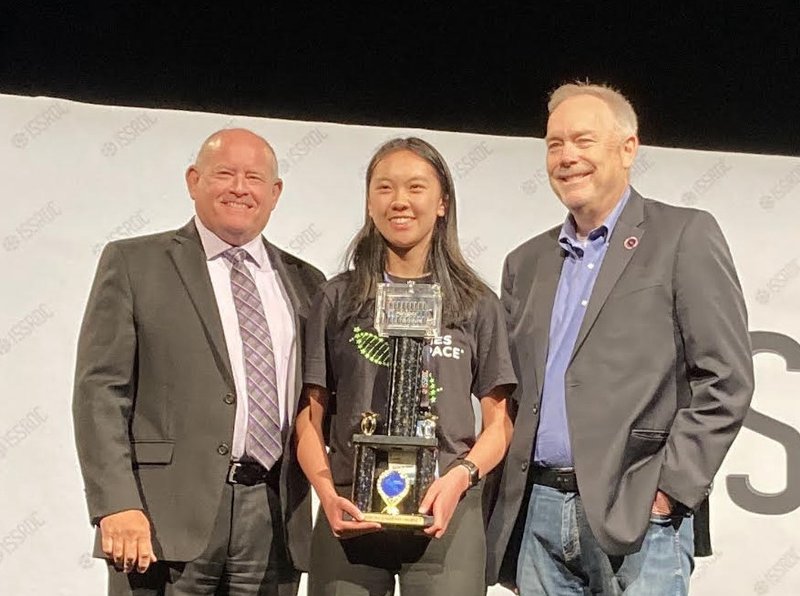
Isabel Jiang receiving the Genes in Space award from Genes in Space Boeing co-founders Scott Copeland (left) and Kevin Foley (right)
The Genes in Space contest invites students in grades 7 through 12 to design biology experiments that address real-world challenges in space exploration. The national competition garnered submissions from 194 schools in 31 states. Authors of the top five proposals presented their ideas to a panel of scientists, educators, and technologists at the conference.
“Our goal is to inspire young minds with the excitement of biological and physical sciences, and every year we are also inspired by the innovative ideas these students submit,” said Scott Copeland, director, Boeing ISS Research Integration. “The winners are already meaningfully contributing to scientific research on the space station and helping us solve challenges that lie ahead in the future of human spaceflight. I’m so proud to be a part of that.”
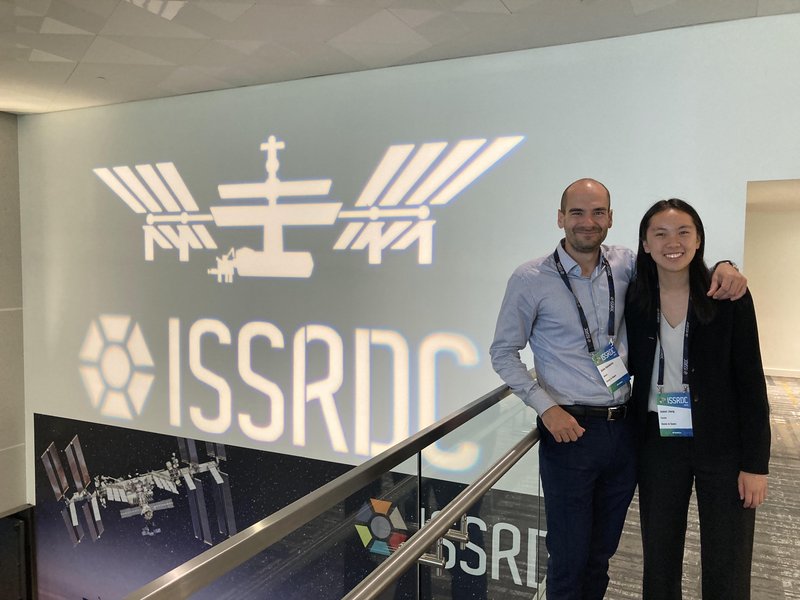
Isabel with her mentor Aleks Radakovic, Harvard University Graduate Student
Jiang’s experiment was selected from a competitive field of 820 submissions from 1,177 students. Her experiment proposes to understand the mechanisms that make latent viruses reactivate in space.
“I’m excited to see what [my experiment] does in space and use that info to inform future medical decisions and see if there’s a way to give astronauts prophylactic drugs in order to prevent future health catastrophes,” said Jiang. “I’m excited to see the medical applications of my research and also explore this topic that has not been studied in space before.”
This will be the 11th Genes in Space student experiment performed by astronauts aboard the orbiting laboratory, in addition to two program technology demonstration missions. Genes in Space was founded in 2015 as a collaboration between Boeing and miniPCR bio. Since then, the ISS National Laboratory and New England Biolabs have sponsored the program.
The other finalist proposals that stood out for their potential to positively impact the future of space travel and in their innovative use of the Genes in Space toolkit, include
- Charlene Chen, 16, Smithtown High School East, St. James, New York, whose project centered on the development of a dual fluorescent-colorimetric DNA aptasensor to rapidly detect oxidative DNA damage in astronaut urine samples.
- Ananth Jagannath, 16, Adrian Wilcox High School, Santa Clara, California, whose research sought to measure the effect of microgravity on protein folding.
- Christina Rasa,18, and Kenny Koch,18, The Tome School in North East, Maryland, whose topic was to use nano-thylakoid units to reverse the effects of osteoarthritis in mice living on the ISS.
- Manasi Vegesna, 17, Hamilton High School in Chandler, Arizona, whose project aimed to assess how space conditions affect immune system central tolerance.
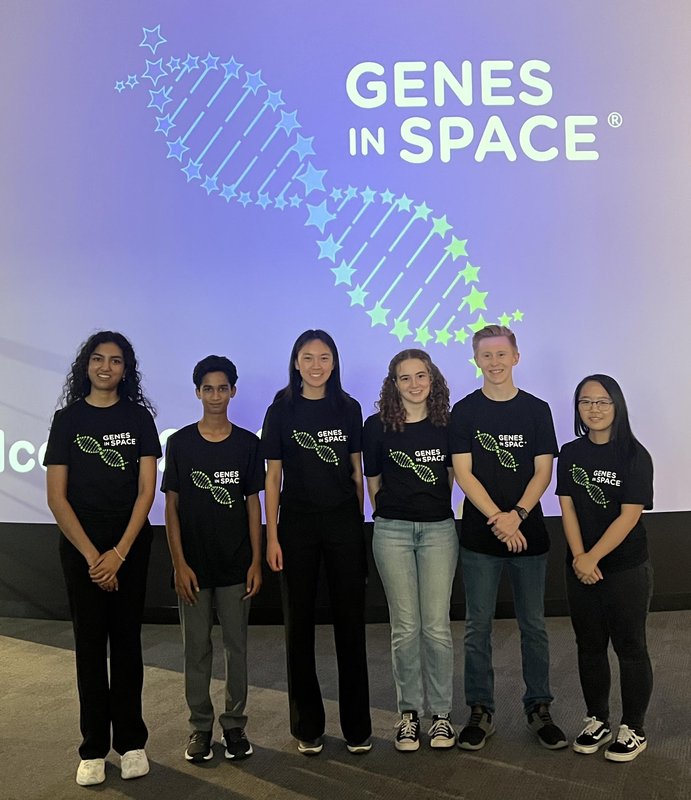
Genes in Space 11 Finalists, (from left to right) Manasi Vegesna, Ananth Jagannath, Isabel Jiang, Christina Rasa, Kenny Koch, and Charlene Chen
This announcement concludes the 2023 Genes in Space competition. Founded by Boeing and miniPCR bio, Genes in Space invites students in grades 7 through 12 to design biology experiments that address real-world challenges in space exploration. Previous contest winners have explored phenomena ranging from DNA repair to immune dysfunction that have achieved significant experimental milestones, including the first use of CRISPR/Cas9 gene editing in space. The competition receives additional sponsorship from the ISS National Laboratory and New England Biolabs.

